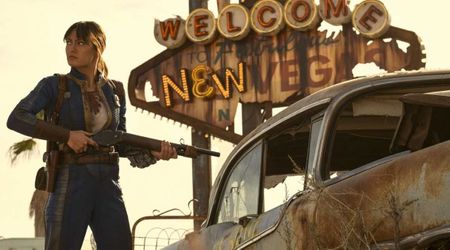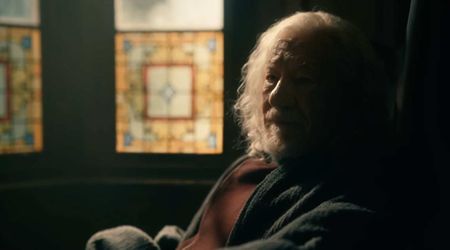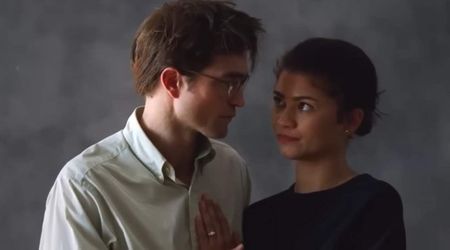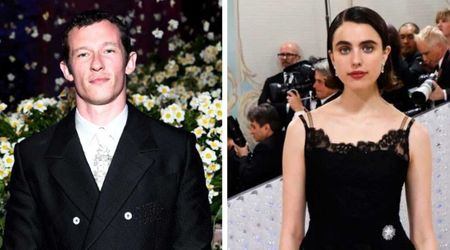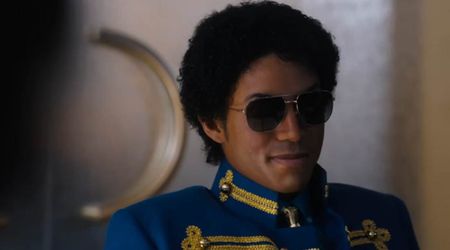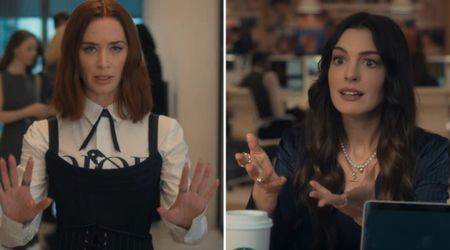'Pieces of a Woman' Shia LaBeouf: Portrait of an artist as an abuser mirrors excuses we make for bad boys

Shia LaBeouf's USP in recent projects is his "edginess", that undercurrent of violent, unpredictable behavior that is the supposed hallmark of 'genius' men with an 'artistic streak'. It was in evidence during the viral live table read of 'Fast Times at Ridgemont High' in which LaBeouf smoked a joint the entire time. The table read was a perfect representation of LaBeouf. He gave an electric performance as the lovable stoner Jeff Spicoli, stealing the show from even fellow A-list actors like Brad Pitt and Jennifer Aniston.
He had the chaotic energy of a man just this side of sanity, showcased the obvious raw talent that had got him noticed in Hollywood in the first place, and yes, the edge of danger with the joint in his hand and wild mannerisms. It is the same energy Tom Hardy brings to the screen, while also being a loving dad and husband at home. So being method doesn't necessarily have to involve also being abusive in more private settings.
The lockdown table read was La Beouf's Hollywood-wide 'audition' as if to signal to the world that he was channeling his bad-boy energy productively to create 'art' like so many creative types before him. He had also built the plot armor of the damaged hero figure, who had survived an abusive childhood with his 2019 'Honey Boy'. As a film, critics saw it less as a film and more as LaBeouf's therapy put on screen. He was a tortured artist who needed the world's patience, kindness, and understanding.
'Honey Boy' was the start of LaBeouf's redemptive arc that sought to bury his abusive, racist past as cries for help. As his career bloomed, the film's narrative also served as his calling card romantically. It became his way to 'hook' other creative women who wanted to save him from himself – be it Tahliah Barnett, aka musician FKA twigs, who he acted with, in 'Honey Boy', or musician Sia, in whose videos he starred.
In 'Pieces of a Woman', he plays a version of this tortured misunderstood archetype. He plays Sean, a construction worker, whose wife Martha's grief makes her cold, almost catatonic. This is reason enough for Sean to go down self-destructive abusive behavior, including trying to have sex with the still traumatized Martha, played by Vanessa Kirby, or hitting her with a yoga ball to get a reaction out of her, which she neatly punctures with her cigarette.
Before the FKA twigs accused LaBeouf of sexual battery and Sia said he had emotionally manipulated her into an adulterous relationship, the scriptwriter of 'Pieces of a Woman' Kata Wéber, in the film's promotional material, spoke of Sean as a sympathetic character – as someone who was "a sensitive man" who is locked out of his partner’s love during the grieving period.
She also said that Sean wore his "grief on his sleeve in contrast to Martha". In short, the character of Sean was written in a way that mirrors exactly how we keep making excuses for abusive men like LaBeouf. We say that their emotional frustrations, with no other outlet, become destructive both to themselves and to others around them. It is a script that is familiar to us and makes sense to us artistically in the film. Why? Because culturally, as a society, we are used to forgiving abusive men and making excuses for them. This is so culturally ingrained that even a film like 'Pieces of a Woman', purportedly about a woman's trauma, tries to make the abusive man look sympathetic and relatable.
LaBeouf's "apology" after FKA twigs and Sia's accusations follow a similar script as the film. “I have been abusive to myself and everyone around me for years. I have a history of hurting the people closest to me. I’m ashamed of that history and am sorry to those I hurt. There is nothing else I can really say,” he said in an interview. But it is time to stop giving men like LaBeouf a pass. They are not "tortured artists" or "misunderstood man-childs". Let's call them what they really are. They are repeat offenders; they are the serial abusers of women.
Even as controversy swirls around him, LaBeouf has been spotted cozying up to Margaret Qualley and packing in the PDA. That is not showing remorse or shame. That is showing the eagerness of a man eager to move on without making amends for the trail of abuse he leaves behind him. There are also no guarantees that Qualley will fare any better than his other ex-es, once the 'love bombing' stage is over. So the question is, when will we finally get over our obsession with abusive bad boys male artists?
The issue is perfectly summed up by 'Honey Boy' director Alma Har'el. After she spoke up in support of FKA twigs, she said, "as a filmmaker and an artist, I am drawn to stories that help us develop empathy for the messy parts of the human condition. [But] I want to send a clear message today that none of the above [abuse] should excuse, minimize or rationalize domestic violence." Which is the point. When do we stop rationalizing and excusing abuse in the present because of abuse in the past? When will artists like LaBeouf stop getting a pass for perpetuating these cycles of abuse?


